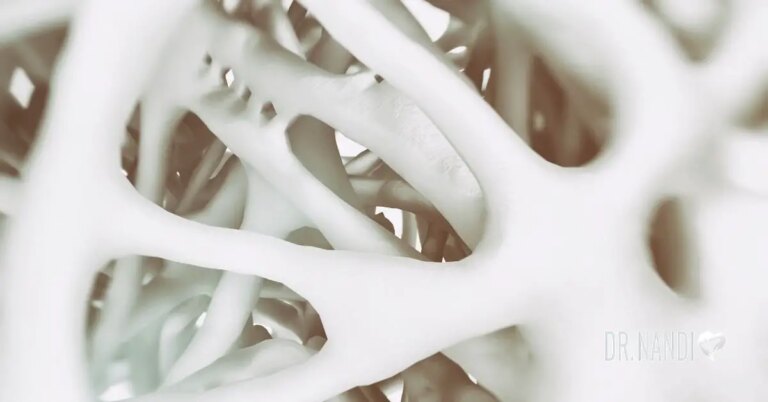Imagine a simple procedure that could potentially reverse aspects of aging, improve cognitive function, and treat a variety of stubborn health conditions. This isn’t a plot from a science fiction novel, but a fascinating breakthrough in medical science involving something as unassuming as our gut bacteria.
Recent research has uncovered astonishing links between the microbiome in our gut and overall health, opening up new possibilities for treatments that could reshape our understanding of aging and disease.
At the heart of this discovery lies the gut microbiota, a complex community of microorganisms in our intestines. Scientists have begun to unravel these tiny organisms’ profound impact on our bodies, from influencing brain health to modulating immune responses. One particularly groundbreaking study has shed light on how gut health could play a crucial role in keeping our minds sharp and our bodies resilient as we age.
What Are Fecal Microbiota Transplants (FMT)?
Gut health is an essential aspect of overall well-being, and one fascinating development in this field is the use of Fecal Microbiota Transplants (FMT). This procedure involves transferring fecal matter from a healthy donor into the colon of another individual to repopulate their gut with beneficial bacteria and microbes.
The process is designed to restore the recipient’s gut microbiome, which plays a crucial role in various bodily functions, including digestion, immune response, and even brain health.
A fecal transplant, also known as FMT, is performed by collecting stool from a pre-qualified healthy donor, mixing it with a saline solution, and then placing it into the recipient’s colon using a colonoscopy, endoscopy, or an enema.
The goal is to repopulate the receiver’s gut with a diverse array of healthy bacteria and microbes that are present in the donor’s stool. This method is significantly faster and more effective than consuming probiotics, as a healthy stool sample can contain over 1,000 strains of microbes at hundreds of trillions of units, compared to the 1–30 strains found in typical probiotic supplements. [1]
Before dismissing the idea of fecal transplants, it’s important to recognize that FMTs are supported by compelling clinical research. While not yet mainstream, fecal transplants have provided significant relief to individuals suffering from a range of digestive disorders and symptoms.
They are handy for recurrent infections caused by Clostridium difficile (C. difficile), a type of bacteria that can lead to severe diarrhea and other intestinal issues. According to early clinical studies, FMTs have shown promise in treating conditions such as irritable bowel syndrome (IBS), ulcerative colitis, autoimmune diseases, chronic fatigue syndrome, celiac disease, obesity, food allergies, rheumatoid arthritis, and diabetes.
Recent research even suggests that fecal transplants might play a role in cancer treatment and managing Parkinson’s disease. The underlying concept of FMT is straightforward: by transplanting the microbiota from a healthy donor into a patient, the procedure aims to reset the recipient’s gut ecosystem.
This “whole system reboot” can help alleviate the symptoms of various digestive disorders by introducing a diverse and healthy bacterial population into the gut, thus promoting better gut health and potentially contributing to healthy aging.

Can Gut Health Really Reverse Aging?
The potential of fecal microbiota transplants (FMT) to influence aging is a groundbreaking discovery that highlights the intricate connection between our gut microbiome and overall health. A recent study published in the journal Nature Aging delves into this fascinating relationship, revealing that gut health may play a crucial role in cognitive function and behavior as we age.
In this study, researchers transplanted gut microbiota from young mice into older mice, observing notable improvements in the cognitive functions and behaviors of the older mice. The older mice exhibited enhanced brain function and behavior, which suggests that the gut microbiome of younger mice can positively affect the brains of older mice.
This study is the first to demonstrate a direct correlation between gut microbiota transplantation and improved brain abilities in older animals, providing a powerful insight into how diet and gut health can influence the brain’s aging process.
One of the key findings of this research is that the transplantation of microbiota from young to old mice not only improved cognitive function but also appeared to rejuvenate parts of the brain. Specifically, the hippocampus, a region of the brain associated with learning and memory, showed characteristics similar to that of younger mice. This suggests that the gut and brain communicate extensively, with the gut microbiome playing a vital role in maintaining brain health.
The researchers explained that this communication is partly mediated by the vagus nerve, a major nerve that connects the gut to the brain. According to the study, “the transplants gave the older mice the gut microbiomes of younger mice; in turn, parts of their brain appeared younger too.” This highlights the potential for gut health interventions, such as FMT, to promote healthy aging and combat cognitive decline.
These findings underscore the importance of maintaining a healthy gut microbiome throughout life. While the study was conducted on mice, it opens the door to further research on the potential benefits of FMT for human aging. The idea that gut health can influence brain health is a significant paradigm shift, emphasizing the need to consider gut health as a critical factor in aging and overall well-being. [2,3]\

What Can FMT Do for Your Health?
Fecal Microbiota Transplants (FMT) have shown promise not only in addressing age-related cognitive decline but also in treating a wide range of other health conditions. Early clinical research indicates that FMT can provide substantial relief for individuals suffering from various digestive and systemic disorders by restoring a healthy balance to their gut microbiome.
1. Clostridium difficile Infections (C. diff): One of the most well-documented uses of FMT is in the treatment of recurrent C. difficile infections, which cause severe diarrhea, abdominal pain, and fever. Antibiotics can sometimes exacerbate C. diff infections by killing off beneficial gut bacteria, allowing harmful bacteria to thrive. FMT has been found to be highly effective, with studies showing that it can cure up to 98% of C. diff cases, providing a natural and powerful alternative to traditional antibiotic treatments.
2. Ulcerative Colitis: FMT has shown potential in managing inflammatory bowel diseases like ulcerative colitis (UC). A study conducted at the Helen DeVos Children’s Hospital in Michigan found that fecal enemas were effective and well-tolerated in children with UC, with 78% of participants showing positive clinical responses within one week. The ability of FMT to reintroduce healthy bacteria into the gut can help reduce inflammation and manage symptoms of UC. [4]
3. Chronic Fatigue Syndrome (CFS): There is growing evidence that an imbalanced gut microbiome can contribute to conditions like chronic fatigue syndrome. A 2012 study published in the Journal of the Australasian College of Nutritional and Environmental Medicine reported that 70% of CFS patients who received gut bacteria therapy showed significant improvement in symptoms. These findings suggest that restoring a healthy gut microbiome can have a positive impact on energy levels and overall well-being. [5]
4. Irritable Bowel Syndrome (IBS): IBS, characterized by chronic abdominal pain, bloating, and altered bowel habits, is often linked to gut dysbiosis. FMT has been shown to be beneficial in restoring the gut microbiome in IBS patients. A study by King’s College London found that 86% of IBS patients treated with FMT demonstrated improvements in their symptoms and responded better to their current medications. [6]
5. Autoimmune Diseases: Autoimmune diseases, where the immune system mistakenly attacks the body’s own tissues, can be influenced by gut health. FMT has the potential to help manage autoimmune conditions by rebalancing the gut microbiome. Researchers have observed that FMT can increase insulin sensitivity and improve inflammatory responses, indicating its potential to support treatments for diseases like rheumatoid arthritis and type 1 diabetes. [7]
6. Food Allergies and Sensitivities: Emerging research suggests that gut bacteria play a role in preventing and managing food allergies. A study by the University of Chicago showed that mice with altered gut bacteria had increased allergic responses, but these responses were reduced when healthy bacteria were introduced. While more research is needed in humans, FMT could potentially help reduce gut inflammation and improve tolerance to certain foods. [8]
Gut Health and Brain Function: What’s the Link?
One of the most fascinating aspects of gut health is its profound impact on brain health, often referred to as the gut-brain connection. This bidirectional communication system between the gut and the brain is crucial for maintaining overall health, affecting everything from mood to cognitive function.
The gut and brain communicate through several pathways, including the nervous system, hormones, and the immune system. A major player in this communication is the vagus nerve, a long, wandering nerve that sends signals from the gut to the brain. This nerve helps convey information about the state of the gut to the brain, influencing everything from stress levels to cognitive function.
Research has shown that the gut microbiome plays a pivotal role in this communication. The microbiome can release neurotransmitters, much like our brain cells do, which then communicate with the brain via the vagus nerve. This process helps regulate mood, stress responses, and cognitive abilities.
Abnormal gut microbiota have been linked to various cognitive disorders and mental health issues. For example, patients with conditions such as multiple sclerosis, Parkinson’s disease, and autism often exhibit imbalances in their gut microbiomes.
Researchers believe that improving gut health through interventions like FMT could help alleviate some of the symptoms associated with these conditions by restoring a healthy balance of gut bacteria.
Moreover, the gut microbiome influences the production of important chemicals in the brain, such as serotonin, which is a key neurotransmitter involved in regulating mood and anxiety. About 90% of the body’s serotonin is produced in the gut, emphasizing the significant role that gut health plays in mental well-being.
In addition to mood regulation, the gut-brain connection also impacts cognitive functions such as learning and memory. The hippocampus, a region of the brain involved in these processes, is particularly influenced by the gut microbiome. [9]
The emerging field of psychobiotics explores how probiotics and other interventions that affect the gut microbiome can be used to treat mental health conditions. By targeting the gut-brain axis, researchers aim to develop new therapies for conditions such as depression, anxiety, and even neurodegenerative diseases.

Thinking About FMT? Here’s What to Know
Understanding the practical aspects of Fecal Microbiota Transplants (FMT) is crucial for those considering this treatment option. The procedure, while innovative and highly effective, involves several important steps and considerations to ensure its success and safety.
How FMT Is Performed
FMT is typically performed in a clinical setting by a qualified physician trained in the procedure. The process involves collecting stool from a healthy donor, mixing it with a saline solution, and then introducing it into the recipient’s colon. This can be done through various methods, including colonoscopy, enema, or a nasoenteric tube that runs through the nose into the stomach or small intestine.
For the treatment of Clostridium difficile (C. diff) infections, usually one or two FMT treatments are sufficient to see significant results. For chronic digestive disorders, however, multiple treatments over several months may be necessary. Patients often experience positive relief after two to three months of almost daily FMTs, which is the typical time frame for healthy bacteria to fully repopulate the gut.
Donor Selection and Screening
The success of FMT heavily relies on the health and quality of the donor stool. Donors must undergo a thorough screening process to ensure their stool is free from harmful pathogens and contains a healthy balance of beneficial bacteria. This screening includes detailed medical history checks and laboratory tests for infectious diseases, such as sexually transmitted infections and hepatitis.
Most donors are typically close family members, as they are likely to share similar gut microbiota, but anonymous donations from healthy individuals are also used. Some medical centers have developed standardized processes for banking frozen fecal material, allowing for a more controlled and consistent source of donor stool.
Administration Methods
The choice of administration method depends on the patient’s condition and the healthcare provider’s recommendation. Colonoscopy and enema are common methods for delivering the stool solution directly into the colon. These methods ensure the immediate presence of healthy bacteria in the gut.
Alternatively, FMT capsules have emerged as a less invasive and more patient-friendly option. These capsules contain freeze-dried stool and can be taken orally. According to a 2017 clinical trial, FMT capsules have shown a 96.2% prevention rate of C. diff infections, comparable to colonoscopy, but with fewer adverse events and higher patient satisfaction.
Preparation and Post-Procedure Care
Preparation for FMT may involve a bowel lavage or “gut flush” to cleanse the intestines of residual feces, antibiotics, harmful bacteria, and toxins. This step can enhance the success of the transplant by providing a clean environment for the new bacteria to colonize.
After the procedure, patients are typically advised to follow specific dietary guidelines to support the growth of healthy bacteria. This includes consuming probiotic-rich foods and avoiding antibiotics unless absolutely necessary, as antibiotics can disrupt the newly established gut microbiota.
My Personal RX on Gut Health for Holistic Wellness
As a doctor, I firmly believe that maintaining a healthy gut is foundational to overall wellness. Here are my top recommendations for supporting your gut microbiome, improving digestive health, and fostering a healthy gut-brain connection:
- Eat a Variety of Fiber-Rich Foods: Incorporate a diverse array of fruits, vegetables, whole grains, and legumes into your diet. These foods provide essential nutrients and fiber that feed the beneficial bacteria in your gut.
- Stay Hydrated: Proper hydration is essential for digestion and overall gut health. Aim to drink at least 8 glasses of water daily to keep your digestive system functioning optimally.
- Limit Processed Foods and Sugars: Processed foods and sugars can disrupt your gut microbiome. Focus on whole, unprocessed foods to support a healthy balance of gut bacteria.
- Incorporate Probiotic-Rich Foods: Foods like yogurt, kefir, sauerkraut, and kimchi are excellent sources of probiotics. These beneficial bacteria can help maintain a healthy gut microbiome.
- Consider my MindBiotic supplement: This supplement optimizes the gut-brain axis through a carefully crafted combination of probiotics, prebiotics, and Ashwagandha KSM 66. It’s designed to support both gut health and mental well-being.
- Manage Stress: Chronic stress can negatively impact your gut health. Engage in stress-reducing activities such as yoga, meditation, or regular physical exercise to maintain a healthy gut-brain connection.
- Get more insights about the gut-brain connection: I highly recommend reading my Heal the Gut, Save the Brain book to better understand the science behind the gut-brain axis and take a holistic approach to improving gut and mental health.
- Get Regular Exercise: Physical activity not only benefits your overall health but also supports a healthy gut microbiome. Aim for at least 30 minutes of moderate exercise most days of the week.
- Limit Antibiotic Use: Antibiotics can disrupt the balance of your gut microbiome. Use them only when necessary and always follow your healthcare provider’s instructions.
- Sleep Well: Quality sleep is crucial for maintaining a healthy gut. Aim for 7-9 hours of sleep per night to support overall health and well-being.
Integrating these tips into your daily routine can foster a healthier gut and improve your overall quality of life. Remember, small, consistent changes can lead to significant health benefits.
Sources:
- Faecal Microbiota transplantation (FMT). (n.d.). Cambridge University Hospitals. https://www.cuh.nhs.uk/patient-information/faecal-microbiota-transplantation-fmt/
- Boehme, M., Guzzetta, K. E., Bastiaanssen, T. F. S., Van De Wouw, M., Moloney, G. M., Gual-Grau, A., Spichak, S., Olavarría-Ramírez, L., Fitzgerald, P., Morillas, E., Ritz, N. L., Jaggar, M., Cowan, C. S. M., Crispie, F., Donoso, F., Halitzki, E., Neto, M. C., Sichetti, M., Golubeva, A. V., . . . Cryan, J. F. (2021). Microbiota from young mice counteracts selective age-associated behavioral deficits. Nature Aging, 1(8), 666–676. https://doi.org/10.1038/s43587-021-00093-9
- Spivack, E. (2021, August 10). Scientists discover a “mind-blowing” link between gut health and age reversal. Inverse. https://www.inverse.com/science/gut-aging
- Kunde, S., Pham, A., Bonczyk, S., Crumb, T., Duba, M., Conrad, H., Cloney, D., & Kugathasan, S. (2013). Safety, tolerability, and clinical response after fecal transplantation in children and young adults with ulcerative colitis. Journal of Pediatric Gastroenterology and Nutrition, 56(6), 597–601. https://doi.org/10.1097/mpg.0b013e318292fa0d
- Borody, T. J., Nowak, A., & Finlayson, S. (2012). The GI microbiome and its role in Chronic Fatigue Syndrome: A summary of bacteriotherapy. Journal of the Australasian College of Nutritional and Environmental Medicine, 31(3), 3–8. https://search.informit.org/doi/10.3316/informit.119626231492520
- Anderson, J. L., Edney, R. J., & Whelan, K. (2012). Systematic review: faecal microbiota transplantation in the management of inflammatory bowel disease. Alimentary Pharmacology & Therapeutics, 36(6), 503–516. https://doi.org/10.1111/j.1365-2036.2012.05220.x
- Xu, M. (2015). Fecal microbiota transplantation broadening its application beyond intestinal disorders. World Journal of Gastroenterology, 21(1), 102. https://doi.org/10.3748/wjg.v21.i1.102
- Gallagher, J. (2014, August 26). Gut bugs “help prevent allergies.” BBC News. https://www.bbc.com/news/health-28887088
- Appleton, J. (2018, August 1). The Gut-Brain Axis: Influence of microbiota on mood and mental health. PubMed Central (PMC). https://www.ncbi.nlm.nih.gov/pmc/articles/PMC6469458/












 Subscribe to Ask Dr. Nandi YouTube Channel
Subscribe to Ask Dr. Nandi YouTube Channel









